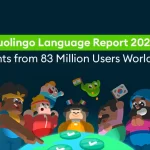Letrus, a Brazilian educational technology startup, has closed a $7.3 million funding round led by Crescera Capital, a Brazilian fund with a track record of investing in prominent educational projects such as Anima and Alura/FIAP, with participation from Owl Ventures, a US-based firm specialising in the educational sector, demonstrating international interest and confidence in Letrus’ business model.
Letrus, founded in Sao Paulo, has developed a revolutionary artificial intelligence-powered platform to enhance students’ reading and writing skills in both public and private schools. As students complete exercises, this programme, integrated into classrooms and linked to pedagogical activities, offers instant feedback, recommendations, and suggestions. At the same time, teachers clearly understand their student’s progress and the overall evolution of the classes.
The UNESCO-awarded Letrus platform uses artificial intelligence to assess, correct, and suggest improvements to students’ texts, signalling a significant shift in how teaching and learning are approached in classrooms. The startup now serves 680 schools, with private networks accounting for 80% of revenue and public networks accounting for 20%. This latter percentage is highlighted by its collaboration with the government of Espirito Santo, with whom it signed a contract last year.
With this funding, the firm intends to invest in marketing and product development, with the aim of extending the platform to 1 million students in the next two years.
This investment process attracted not only high-profile investors but also entities such as Altitude Ventures from Pennsula, Abilio Diniz’s family office; education-focused foundations such as Lemann and VélezReyez+; BID Labs, the Inter-American Development Bank’s innovation arm; and angel investors.
Letrus hopes to consolidate its current presence and expand significantly in 2024. It is currently negotiating with several private educational groups and at least three state governments, forecasting exponential growth and an even more substantial impact in Brazil’s educational sector and potentially across Latin America.


